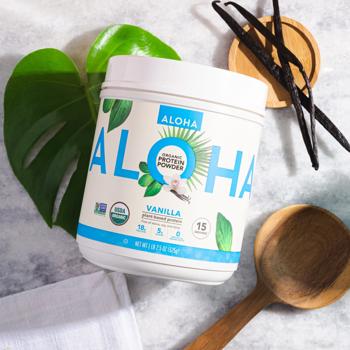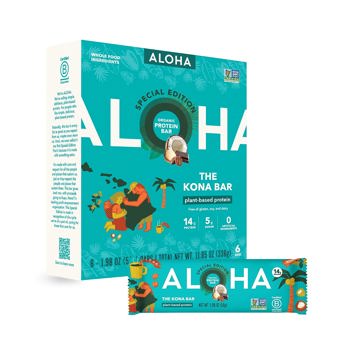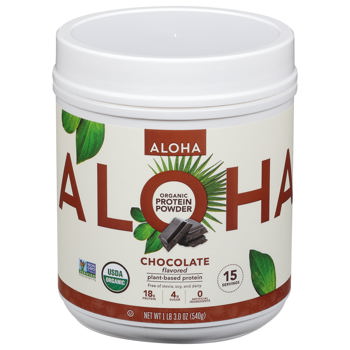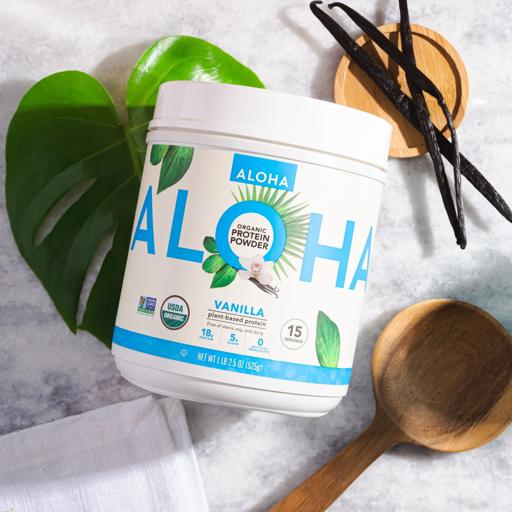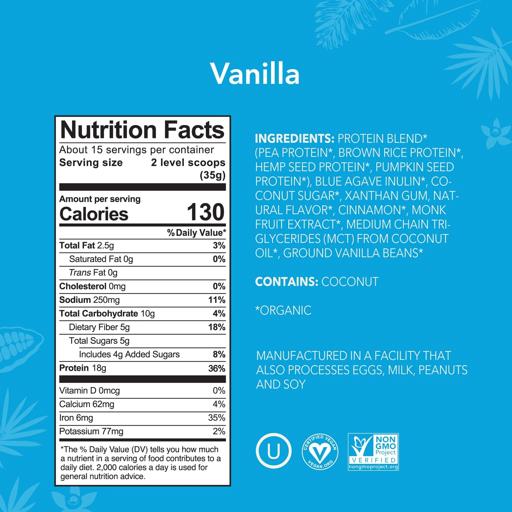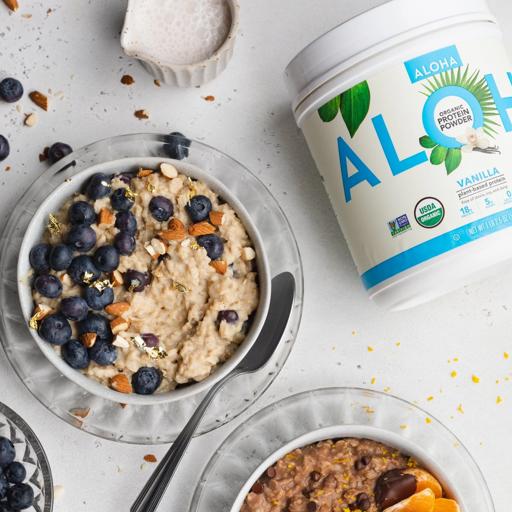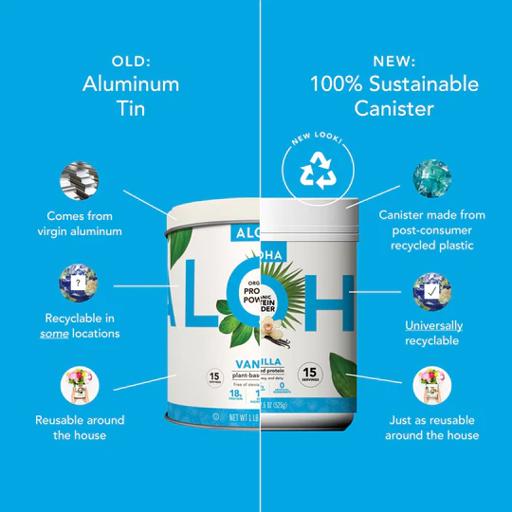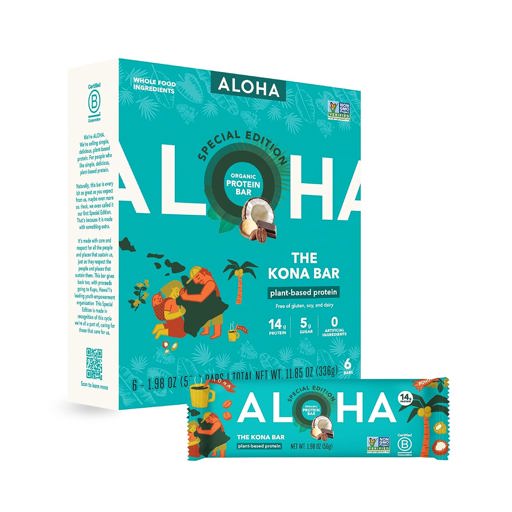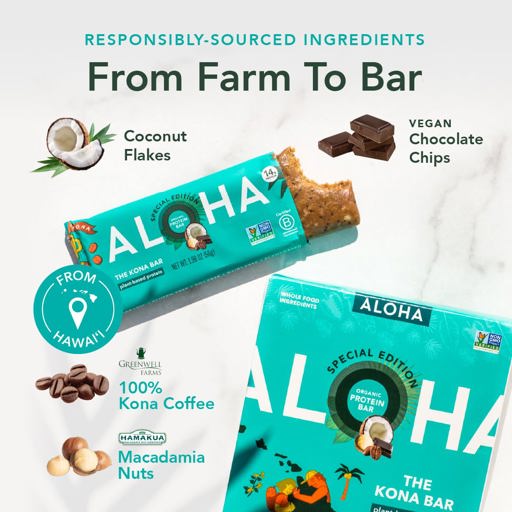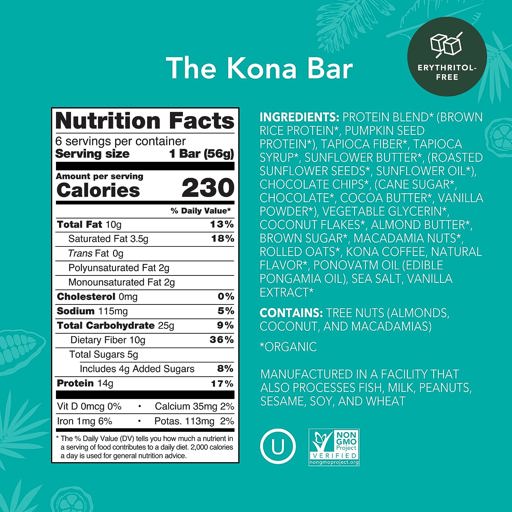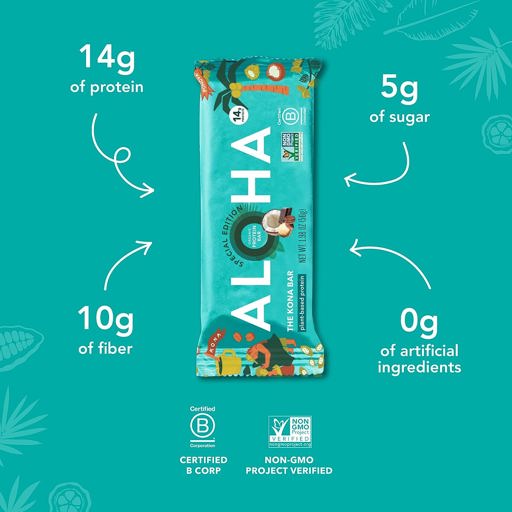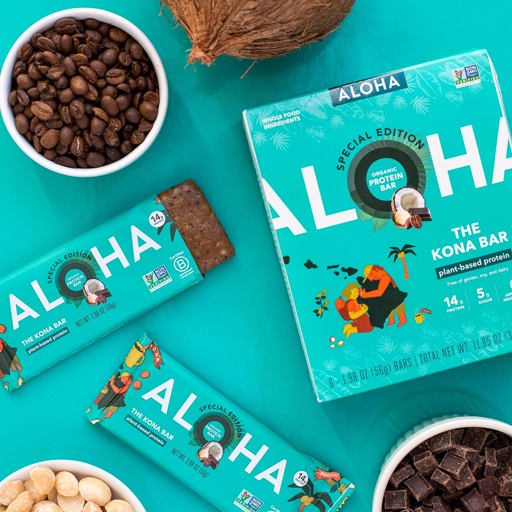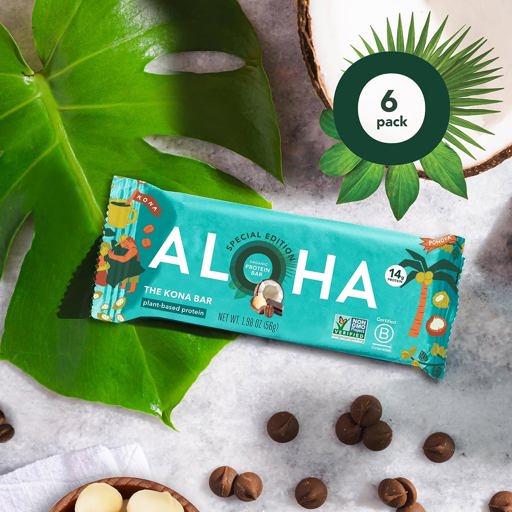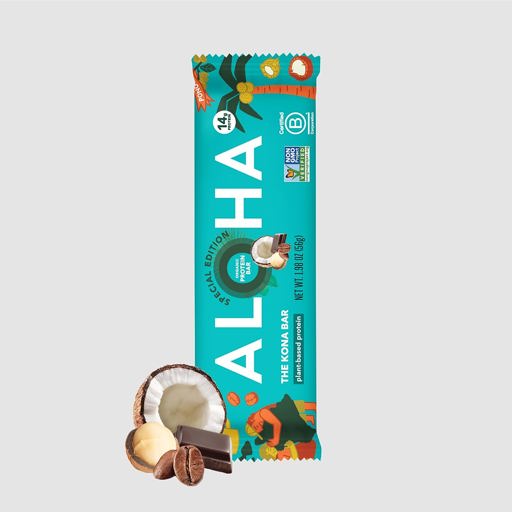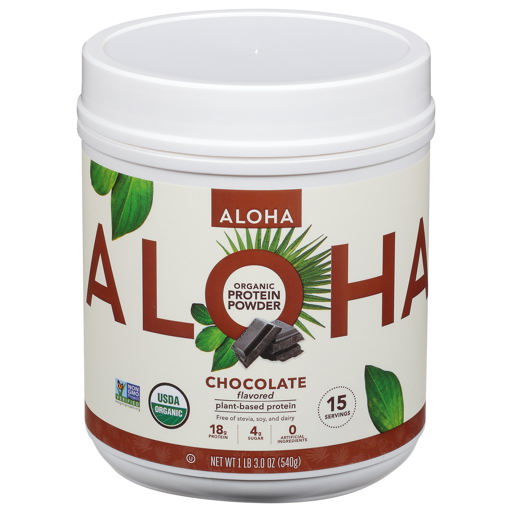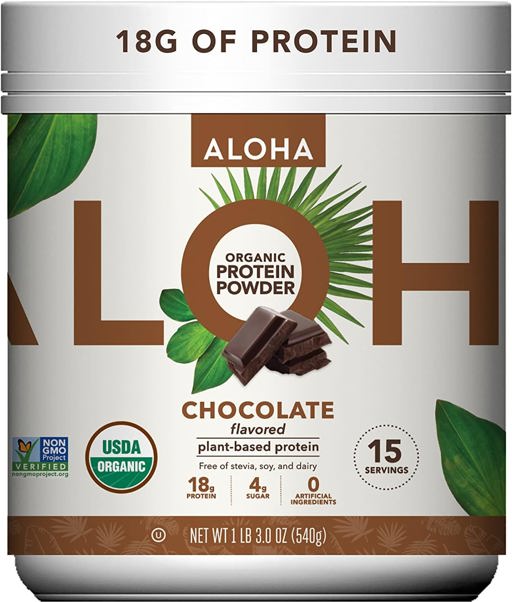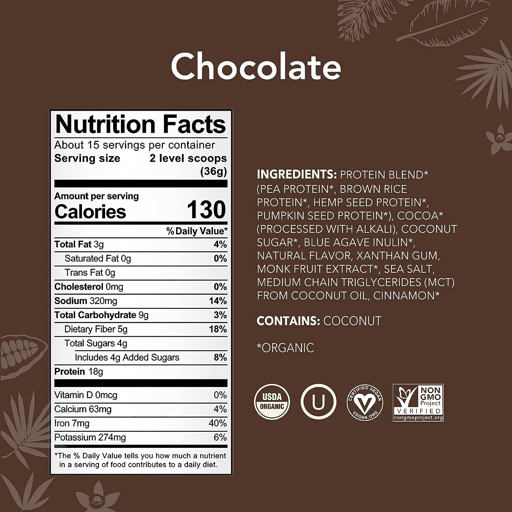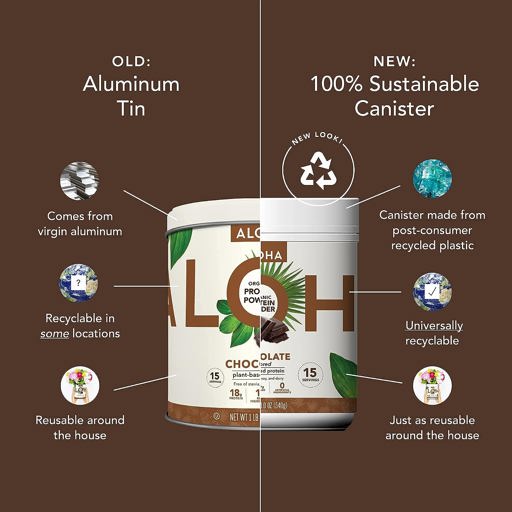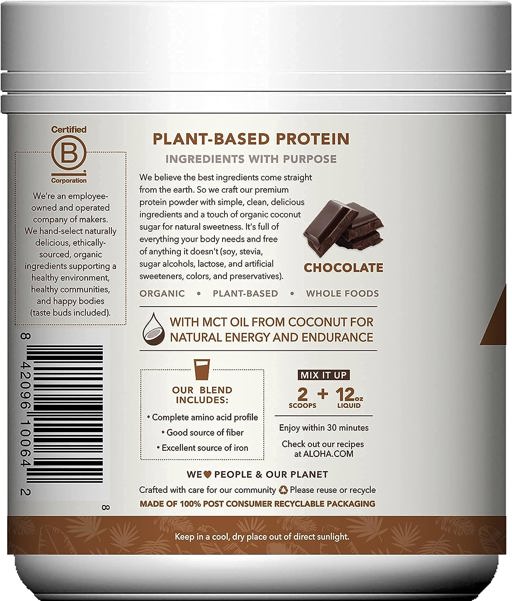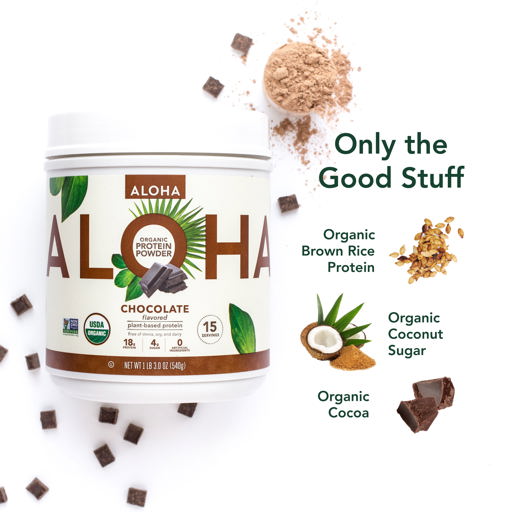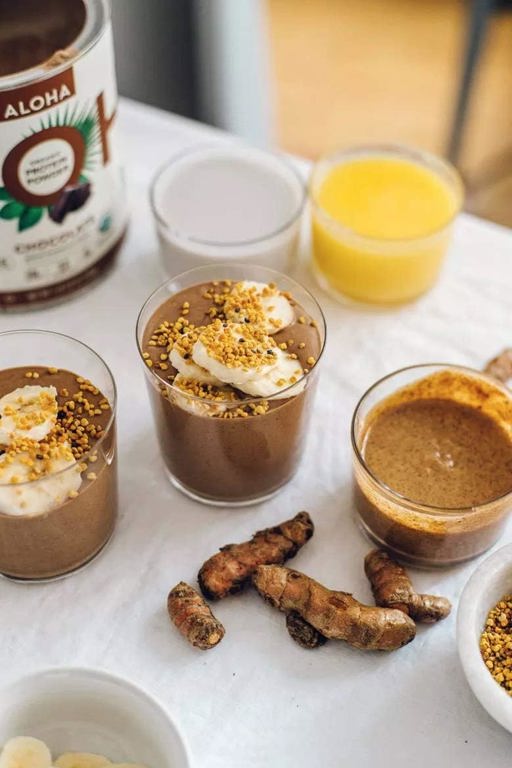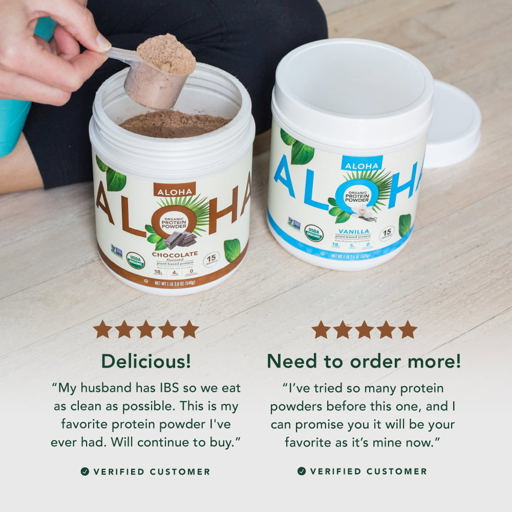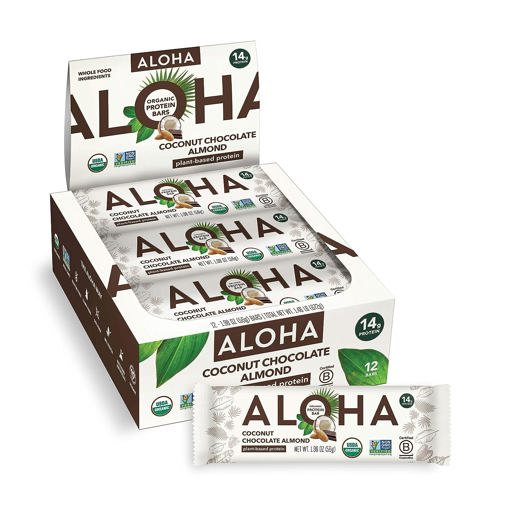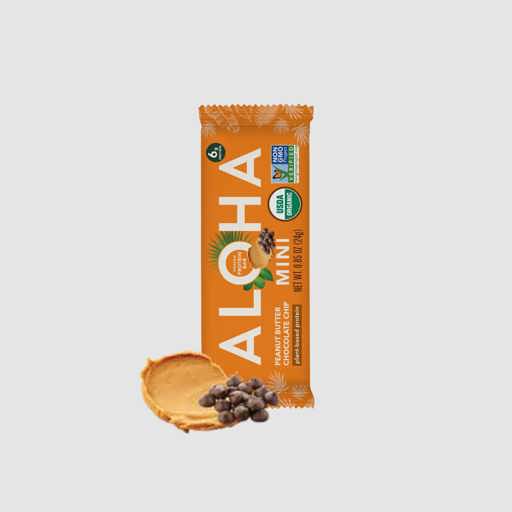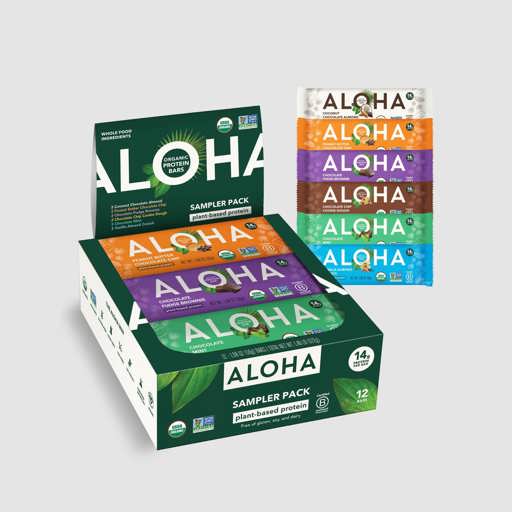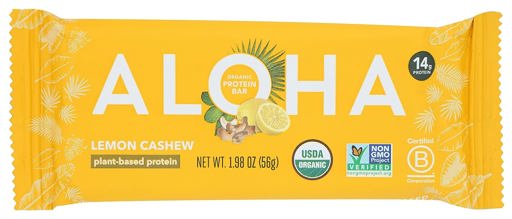Bestsellers for ALOHA Ingredients
Understanding what goes into your food is key when you're on a journey to healthier eating. Sugar alcohols like erythritol are popping up in many products as a sweet alternative that can reduce how much sugar you're consuming. But with so much information out there, it's normal to wonder if they're truly safe and how they affect our bodies.
At ALOHA, we believe in the power of plant-based nutrition and want to help clear up any confusion about these ingredients so you can make informed choices on your path to wellness. Let’s dive into the world of sugar alcohols together – exploring their uses, safety profile, and how we use them (hint, we don't!) in our delicious offerings!
What Are Sugar Alcohols?

Sugar alcohols are carbohydrates that have characteristics of both sugar and alcohol. While sugar alcohols are found in certain plants, like melons, they are typically produced in a lab when used as a food additive. These sweeteners have fewer calories than regular sugar, which can help people manage their weight or blood sugar levels.
Common types of sugar alcohols include mannitol, sorbitol, xylitol, lactitol, isomalt, maltitol, erythritol, and hydrogenated starch hydrolysates (HSH). You won't usually use them in your kitchen but often find them in store-bought foods like candies, sodas, ice cream, and yes, even health foods. Some sugar alcohols, like xylitol, are used to keep your teeth healthy and can be found in products like toothpaste, mouthwash, and gum. You may also see xylitol and other sugar alcohols in sinus sprays and other over-the-counter medicines.
How to Spot Sugar Alcohols

When you read food Nutrition Facts labels, look for words that end with "-ol" to spot sugar alcohols. This will usually let you know if sugar alcohols are inside your food; however, in some situations, food manufacturers do not have to disclose that their products contain sugar alcohols.
Disclosing the number of grams (g) per serving of sugar alcohols (under total carbohydrates) is voluntary unless the package also contains a statement claiming the health effects of sugars or sugar alcohols.
When health effect claims are made on a product containing sugar alcohols, it is mandatory for food manufacturers to disclose them. Understanding these labeling nuances can help you make more informed choices about your dietary intake.
At ALOHA, we're transparent about our ingredients and do not use sugar alcohols in our foods.
How Are Sugar Alcohols Used?

Because sugar alcohols don't raise blood sugar levels quickly, they're sometimes consumed by people with diabetes, individuals on the keto diet, and those who are watching their weight or sugar intake.
Here's how you might find sugar alcohols being used:
- Gum and mints: Sugar alcohols prevent cavities since bacteria in your mouth can't use them to make acid.
Ice cream and frozen desserts: Sugar alcohols keep these treats sweet while reducing added sugars.
Sugar-free chocolate and candy: Sugar alcohols provide a sweet taste but with fewer calories, making these snacks a bit healthier.
Toothpaste and mouthwash: They fight against tooth decay by not feeding harmful mouth bacteria.
Diet drinks: These beverages stay sweet while being low in calories.
Baked goods labeled "sugar-free": Sugar alcohols help keep these treats tasty without adding lots of sugar.
Throat lozenges and cough syrups: Sugar alcohols make these products less sugary and may be less irritating to your throat and teeth.
Certain kinds of fruit spreads: Sugar alcohols add sweetness without all the carbs from regular sugars.
Protein bars and shakes: Sugar alcohols are often used in protein products to maintain flavor and add sweetness; however, all of ALOHA's products are sugar alcohol-free. We prefer to keep our products naturally low in sugar and use other sugar alternatives like monk fruit.
Remember to check food labels if you're counting carbs or managing your diet – some products with sugar alcohols still have carbohydrates that can contribute to your overall intake.
Are Sugar Alcohols Safe?

Sugar alcohols may be a good choice if you're trying to cut down on sugar and calories, but it's important to understand your personal health situation and how sugar alcohols may fit into your overall plan. Like most things, if you do choose to eat foods with sugar alcohols, use them in moderation.
Eating too much of these sweeteners might lead to stomach problems like gas or diarrhea. It's also worth noting that while they don't raise blood sugar levels as quickly as regular sugars do, overeating them may still affect your blood glucose levels. Products containing sugar alcohols may still contain carbs, so it's important to read labels to ensure you know how many carbs and calories are in a particular food.
A recent study raised concerns about erythritol, a type of sugar alcohol. The study suggested there might be a link between using erythritol and heart problems like strokes and heart attacks in people who already have heart disease or risk factors such as diabetes and high blood pressure. More research is needed to be definitive.
The American Diabetes Association says that while sugar alcohols may be okay if you don't go overboard with them, some people with Type I diabetes noticed their blood sugars went up when they ate sugar alcohols.
So what does this mean for you? If you enjoy foods with these ingredients occasionally, it may be fine! Just keep an eye on how much you eat and watch out for any signs that your body isn't happy about it. Or, look for products with ingredients that are less likely to irritate your stomach or contribute to other problems.
If you're unsure how to safely fit these sweeteners into your diet, talking to a nutrition expert like a dietitian could be helpful. They can give advice tailored just for you!
At ALOHA, we keep it simple by choosing not to put ingredients like erythritol in our foods. By opting for monk fruit and plant-based natural sweeteners, we can better support your healthy lifestyle choices every step of the way!
Health Upsides of Sugar Alcohols

Here are a few positives to consider:
Sugar alcohols don't cause your blood sugar and insulin levels to spike quickly. This is because they break down slowly in the gut, so only part of their carbs get absorbed by your body.
For folks with diabetes, this slow breakdown means sugar alcohols can be a helpful substitute for regular sugar.
Since sugar alcohols have fewer calories than sugar, using them might help you better manage your weight.
Sugar alcohols are not fully absorbed by the body, which means they provide fewer calories per gram compared to regular sugars.
It's important to remember that while these upsides sound great, moderation is key. Eating too many sugar alcohols can lead to stomach issues or affect blood glucose levels if you're not careful, so it may be best to avoid them.
If you're watching what you eat or need help managing conditions like diabetes, talk to a doctor.
Sugar Alcohol Health Downsides

Sugar alcohols can cause some problems, especially if you eat too much.
Here are some downsides to eating sugar alcohols:
Stomach pain: Eating lots of sugar alcohols might hurt your stomach.
Diarrhea or loose stools: Sugar alcohols may act like a laxative and make you go to the bathroom more often.
Gas: Because they take longer to digest, bacteria in your gut have time to create gas.
These issues happen because sugar alcohols move slowly through your intestines and don't get broken down the way other ingredients do. As they travel, they can pull water into your colon, which leads to diarrhea for some people. Also, as these sweeteners break down in the gut, bacteria feed on them and produce gas.
If you have irritable bowel syndrome (IBS) or a sensitive stomach, eating foods with sugar alcohols could make symptoms worse. It's best not to eat too many at once and see how your body reacts. And, as always, talk to a doctor before changing your diet or attempting to modify your weight.
The ALOHA Approach to Sugar Alcohols & Erythritol

To make it easier for you to eat foods that support your health, we NEVER include sugar alcohols in our foods. Instead, we use monk fruit and other natural sweeteners to keep our products low in sugar without sacrificing on flavor. Read our article "Monk Fruit," for more information on this delicious alternative to sugar alcohols.
FAQ
What's the difference between sugar alcohols and artificial sweeteners?
Sugar alcohols are carbohydrates found naturally in some fruits and vegetables and can be manufactured. They provide sweetness and have a similar chemical structure to sugar but with fewer calories. On the other hand, artificial sweeteners like aspartame and saccharin are synthetic and often provide no calories. They tend to be much sweeter than sugar and sugar alcohols. To learn more, read our article on sugar substitutes.
Do sugar alcohols contain booze?
Remember that even though sugar alcohols have similar chemical properties to alcohol, they don't contain the same type of alcohol that is found in alcoholic beverages. Think of them more like calorie-free or low-calorie carbs that taste sweet but that don't get digested or absorbed by your body.
How do sugar alcohols affect tooth health?
Unlike regular sugars, sugar alcohols do not contribute to tooth decay because they are not metabolized by the bacteria in the mouth to produce the acids that harm teeth. This is why sugar alcohols are commonly found in products like sugar-free gums and toothpaste.
Can I bake with sugar alcohols the same way I do with sugar?
Yes, you can use sugar alcohols in baking as a substitute for sugar. However, you may notice variations in texture, sweetness level, and how the food browns during cooking. It's best to follow a recipe specifically designed for sugar alcohols to achieve the best results or use another sweetener like monk fruit extract instead.
Is there an ideal amount of sugar alcohol one should consume daily?
There is no established ideal daily amount for sugar alcohols. Intake should be based on individual tolerance, dietary goals, and any health conditions like diabetes. Keep in mind that excessive consumption can cause digestive issues or other problems.
Are sugar alcohols recommended for weight loss?
Sugar alcohols have fewer calories than table sugar and can be part of a weight loss strategy when used as a substitute for higher-calorie sweeteners. Maintaining a balanced diet and regular exercise are also crucial for effective weight loss.
Do you need to account for sugar alcohols when counting carbs?
Yes, you should consider sugar alcohols when counting carbs, especially if you manage diabetes. Although they have less impact on blood glucose levels, they still provide some carbs.
Is erythritol safe for children to consume?
Erythritol is generally recognized as safe for the general population, including children. However, because it may cause digestive upset, it's advisable to avoid giving children erythritol or give it in moderation.
Can sugar alcohols lead to sugar cravings?
There's no strong evidence that sugar alcohols lead to sugar cravings. They provide a sweet taste without the same blood sugar spike that regular sugar causes, which could potentially help manage cravings.
Are there any people who should avoid sugar alcohols altogether?
People with irritable bowel syndrome (IBS) or similar digestive conditions and those with specific allergies or sensitivities to sugar alcohols may want to avoid them. Consult with a healthcare professional for personalized advice.
How long do sugar alcohols stay in the system?
The time sugar alcohols stay in the system varies, but they are metabolized slower than sugar due to their incomplete absorption in the intestine. Digestive transit times can vary among individuals.
ALOHA does not provide medical advice, diagnosis, or treatment. Any information published on this website or by this company is not intended as medical advice. Always consult a qualified health or mental health professional with any questions or concerns about your physical or mental health.
ALOHA Buying Guide

Vanilla Protein Powder
ALOHA Organic Plant-Based Protein Powder is a vegan protein powder with 18g of clean, organic, plant-based protein per pouch. It contains 200mg omega-3s and provides an excellent source of magnesium & iron. It is also USDA Certified Organic Non-GMO, Gluten-Free, Dairy-Free, Soy-Free and Vegan.
The ALOHA Organic Plant-Based Protein Powder is an ideal supplement for those looking to promote lean muscle development. Each pouch provides 18g of clean, organic, plant-based protein alongside 200mg of omega 3s and essential minerals such as magnesium and iron. This vegan protein powder is also certified organic by the USDA meaning it contains no preservatives or artificial ingredients. It is also gluten free, dairy free, soy free and vegan friendly! All these features make the ALOHA Organic Plant Based Protein Powder an easy choice for anyone looking for a healthy source of nutrition.
- Organic and Plant-Based ingredients promote a healthier lifestyle
- The delicious Vanilla flavor adds a sweet touch to your protein shakes
- As it is a Protein Powder, it helps in muscle recovery and growth
- A good source of protein for those on a vegan or vegetarian diet
- At 1.14 Pounds (518g), it provides a good quantity that lasts for an extended period
- Packaging is sturdy and ensures the product remains fresh
- The product is easy to mix with water, milk, or any preferred beverage without forming lumps.
The Kona Bar (Pack of 6)
ALOHA's Organic Plant Based Protein Bars are vegan, low sugar, gluten free, paleo friendly and contain 14 grams of USDA organic plant-based protein.
The ALOHA Organic Plant Based Protein Bars are a delicious and healthy snack option. They are made with local ingredients from Hawai’i such as 100% Kona Coffee, 100% Hawai’i-grown Macadamia Nuts and Ponova oil from O'ahu's North Shore. The bars contain 14 grams of USDA organic plant-based protein as well as 10g of fiber and only 5g of sugar per bar, making them an excellent choice for those looking for a nutritious snack. Furthermore, the bars are vegan, Non-GMO, gluten free snacks that are Soy-Free, Dairy-Free and Stevia-Free. Finally, 10% of proceeds from the bars will be donated to Kupu to support agricultural education programs in Hawaii – a nice touch!
- Organic Plant Based Protein: Consumers love the fact that these bars are made from organic plant-based protein, making them a great source of protein for vegans and vegetarians.
- Special Edition Kona Flavor: The unique Kona flavor is a hit among customers, who appreciate the novelty and taste of this special edition.
- Low Sugar: Customers appreciate that these bars are low sugar, making them a healthier snack option.
- Gluten Free and Paleo: These bars are gluten free and paleo, which fits perfectly into the dietary needs of many consumers.
- Non-GMO: The fact that these bars are Non-GMO is highly valued by consumers who are careful about their food choices.
- Free from Stevia, Soy and Erythritol: Customers value the absence of Stevia, Soy and Erythritol in these bars, making them a clean eating option.
- Low Carb: The low carb count is appreciated by customers who are watching their carbohydrate intake or following a keto diet.
Chocolate Protein Powder
Plant-Based Protein Powder with Organic Chocolate, Keto Friendly, Vegan, Gluten Free, Non-GMO, Stevia Free & Erythritol Free, Soy Free, Dairy Free and Only 4g Sugar.
This Plant-Based Protein Powder is an excellent choice for those looking for a healthy and delicious way to get their daily protein intake. It is vegan and contains no soy or dairy meaning it can be enjoyed by most dietary restrictions. Plus it is keto friendly with only four grams of sugar per serving! It also contains MCT oil giving it a boost of natural energy that will keep you going throughout the day. Finally, this product is free from both stevia and erythritol making it a great choice for those who want to avoid artificial sweeteners.
- Plant-Based: The protein powder is vegan-friendly, making it suitable for those following a plant-based lifestyle.
- Keto Friendly: With MCT Oil included, it is ideal for those on a ketogenic diet.
- Low Sugar: Containing only 4g of sugar, it's an excellent option for people looking to limit their sugar intake.
- Gluten and Soy Free: This product is perfect for those with dietary restrictions as it's free from gluten and soy.
- Dairy Free: Being dairy-free makes it an excellent choice for lactose-intolerant individuals or those avoiding dairy.
- Non-GMO: The protein powder is non-GMO, indicating a commitment to natural ingredients and health.
- Free from Stevia and Erythritol: This product does not contain stevia or erythritol, making it a great choice for those who prefer to avoid these sweeteners.

